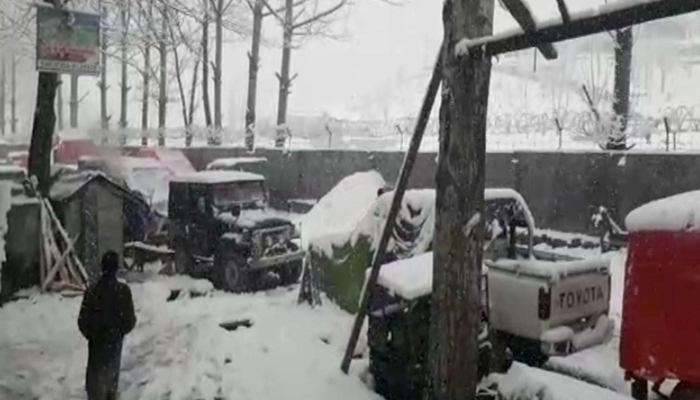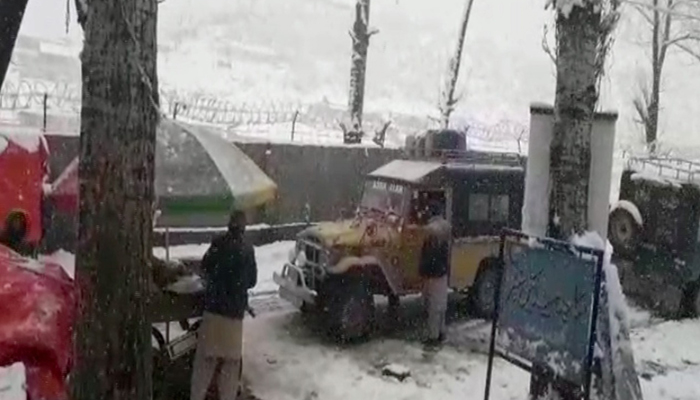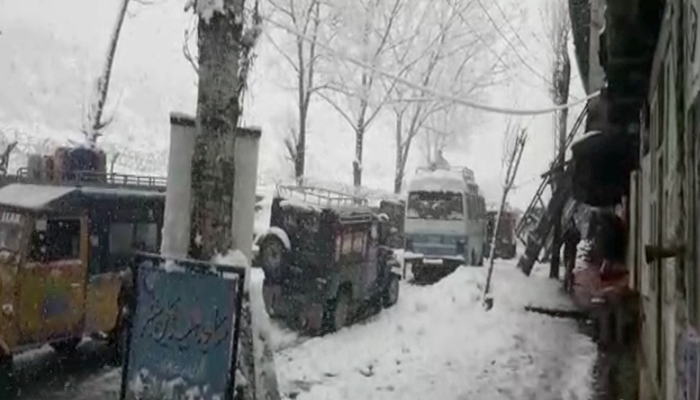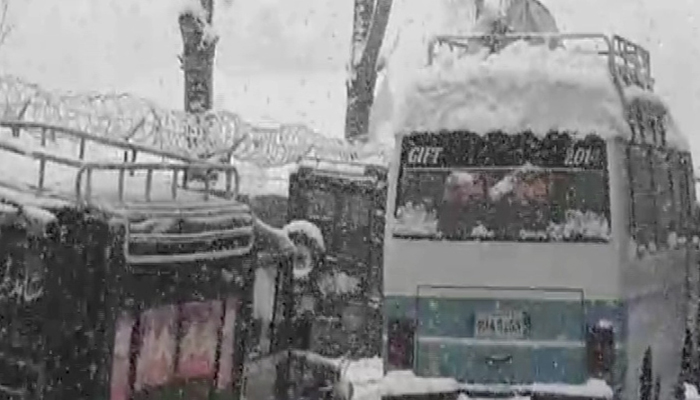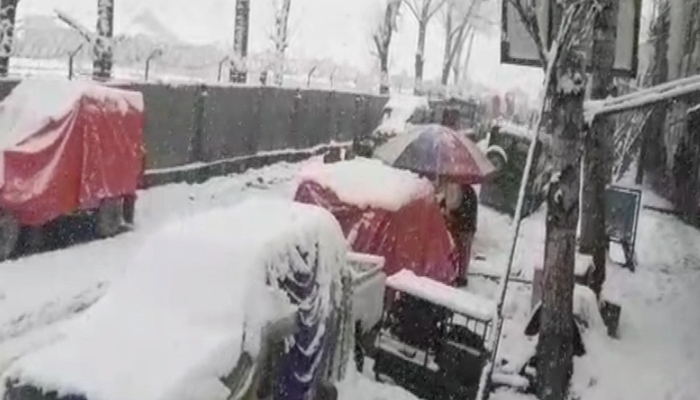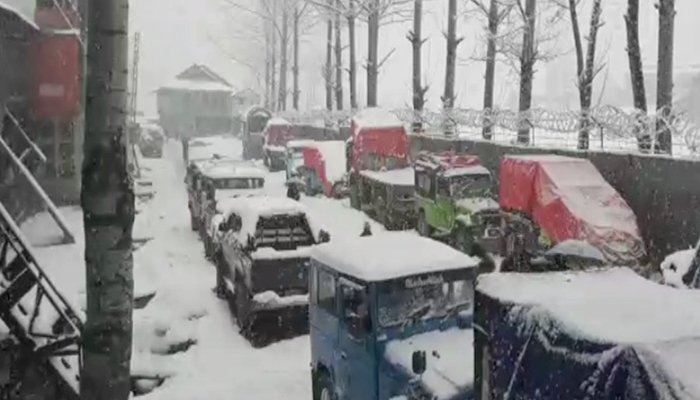ABBOTTABAD/AZAD KASHMIR: A spell of heavy snowfall and rainfall paralysed parts of Azad Kashmir, Nathia Gali in Abbottabad, and Galyat stranding hundreds of cars and tourists.
At least 800 stranded vehicles have formed long lines on roads blocked by piles of snow.
Heavy downpour and snowfall blocked land routes to Islamabad from four districts of Azad Kashmir.
Stranded tourists, including women and children, appealed to the authorities to provide urgent rescue service.
Cold, dry weather expected
According to the MET, more rain and thunderstorm (with snowfall over the hills) are expected at isolated places in Malakand, Hazara, Zhob divisions, Federally Administered Tribal Areas (FATA), Kashmir and Gilgit-Baltistan in the next forty-eight hours.
In the last twenty-four hours, snowfall recorded in three inches in Malamjabba, one inch in Murree and Rawalakot, half-foot in Kalam and Parachinar, while three inches of snowfall was recorded in Ziarat.
On Sunday, rainfall in Chirat was recorded at 56 millimetres, while 46 millimetres and 39 millimetres of rain was recorded in Malam Jabba and Dir.
Precipitation trends claim over 150,000 lives annually
According to the World Health Organization (WHO), the warming and precipitation trends associated with climate change claim over 150,000 lives annually.
It is possible that the costs of this phenomenon will increase with time —both in lives as well as in economics — underscoring the need for more effective approaches to this problem.
The rate of global warming has accelerated over the last few decades and, as a result, sea levels are rising, glaciers are melting and precipitation patterns are changing.
Extreme weather events are becoming more frequent and more intense, and their consequences have had a harsh impact on the lives of every population in nature.
Pakistan has more glaciers than any other country outside the polar region – more than 7,200 in the Karakoram, Himalayan and Hindu Kush ranges, according to Pakistan’s meteorological department.
They feed the Indus River system, the country’s water lifeline. But data gathered over the last 50 years shows that all but around 120 of the glaciers are showing signs of melting, meteorological officials said.
Recent natural catastrophic events in the United States and Puerto Rico — which may be related to or worsened by climate change — call attention to the effects this phenomenon has on human health.


